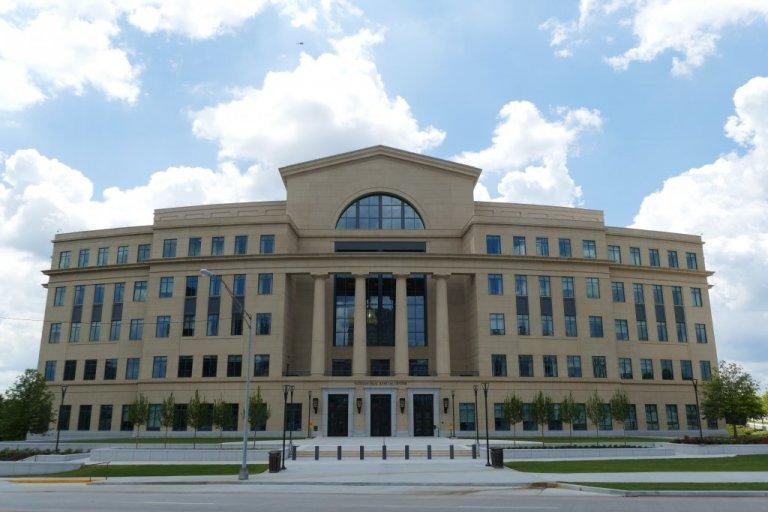
Caption
The standstill in jury trials has resulted in a backlog of thousands of cases that judges and attorneys fear will take years to catch up.
Credit: John McCosh/Georgia Recorder (file photo)

The standstill in jury trials has resulted in a backlog of thousands of cases that judges and attorneys fear will take years to catch up.
Georgia Supreme Court Chief Justice Harold Melton said he’s planning to lift a year-long restriction Tuesday to allow jury trials to resume that have been on hold during the COVID-19 pandemic.
The standstill has resulted in a backlog of thousands of cases that judges and attorneys fear will take years to catch up — and leaves many Georgians facing criminal charges stuck in jail or in perpetual limbo waiting for their cases to get resolved.
In response, Georgia legislators have cleared the first hurdle in temporarily suspending the state’s speedy trial requirement. Last week, the Georgia Senate voted in support of giving judges more leeway to process civil and criminal cases through the system.
“Without this bill under our statutory speedy trial provisions, we have the potential to have cases where the courts will be forced to try or dismiss cases based on gamesmanship versus orally trying cases based on how long they’ve been pending and when an individual may be incarcerated,” said Senate Bill 163’s sponsor Sen. Brian Strickland, a McDonough Republican and attorney.
Since last March, Georgia’s courts have operated under Melton’s statewide judicial emergency order, which has changed how bond hearings are held, added jury trial restrictions, and limited grand jury proceedings for safety precautions.
Melton says the most pressing problem Georgia’s courts must solve is how to handle the intense upcoming caseload while treating the thousands of people waiting in jails fairly.
“We know the premium that we have to put on safety,” Melton said during a recent panel discussion hosted by the Georgia First Amendment Foundation. “There is a very close premium that we put on the idea that individuals, individuals have been locked up in jail in some instances for a year, without facing trial, and maybe even longer.”
The number of criminal and civil cases across Georgia has rapidly expanded over the last year, including in Henry County Superior Court, where the criminal court calendar has risen from 80 cases pre-pandemic to about 350, according to Chief Judge Brian Amero.
Once trials resume in Fulton County, following social distancing and other health protocols will severely hamper how many courtrooms can hold trials simultaneously, said Georgia Supreme Court Justice Shawn Ellen LaGrua.
“I was in the Fulton County Courthouse for ten years,” she said. “We have an entire courthouse for 30 judges, if you count state and superior courtrooms, that have the ability right now to pick a jury. We used to have sometimes 15 plus juries going during one week. Now we might have one at a time.”
But slowing down the right to a speedy trial is getting criticized by the Georgia Association of Criminal Defense Lawyers for putting defendants at a disadvantage.
The Senate bill now heads over to the House for consideration. But while this would change the process under state law, the measure doesn’t affect a defendant’s right to petition for a speedy trial under the U.S. Constitution.
This story comes to GPB through a reporting partnership with Georgia Recorder.